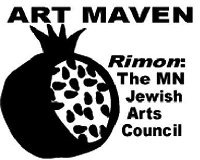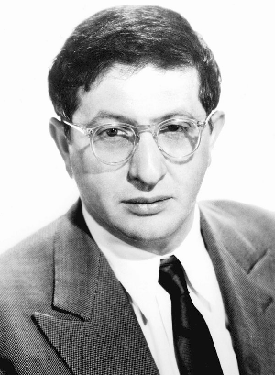Opera expert Phillip Gainsley offers insight into the composer’s work and his Minneapolis connection
Â
By PENNY GALINSON and BARBARA CAMM
Â
The Minnesota Opera is celebrating the centenary of legendary Hollywood composer Bernard Herrmann with the first major production of his only opera, Wuthering Heights, which was completed in Minneapolis in 1951. Herrmann, the Academy Award-winning composer for directors Orson Welles, Alfred Hitchcock, François Truffaut and Martin Scorsese, is considered one of the 20th century’s greatest creators of film music.
Rimon: The Minnesota Jewish Arts Council, an initiative of the Minneapolis Jewish Federation, has made Herrmann the focus of two exciting events in April. You won’t want to miss opera expert Phillip Gainsley and composer Adam Wernick discussing Herrmann’s timeless scores at the Rimon Artist Salon titled “Bernard Herrmann: Music Goes to the Movies (with a side trip to the opera)” on April 10; and a preshow reception, “An Afternoon with Rimon at the Opera,” prior to the matinee performance of Wuthering Heights, presented by the Minnesota Opera, on April 17.

Â
Art Maven wanted to interview Gainsley to find out more about Bernard Herrmann. We knew that Herrmann was the son of observant Russian Jewish immigrants, grew up on New York’s Lower East Side and was an early champion of the music of Charles Ives. Gainsley would be able to tell us about Herrmann’s work and his Minneapolis connection.
Â
Art Maven: What was your first exposure to Bernard Herrmann?
Gainsley: When I was in confirmation class at Temple Israel, we had a class party. One of my classmates worked for Minnesota Music Company on Hennepin Avenue, and we went there to see a sneak preview of Hitchcock’s The Man Who Knew Too Much (1956). The climax of the film was the performance of the “Storm Cloud Cantata.” Hitchcock had a shot of the Royal Albert Hall with a poster announcing that Bernard Herrmann was conducting the London Symphony Orchestra. Then we actually see Herrmann conducting the cantata.
I went to Syracuse University and hated it so much that I used to go into New York to Radio City Music Hall. There I saw the film North by Northwest. I was 18. The music was so sensational, I said, “This is something special.” That was my real introduction to Bernard Herrmann.
AM: What was Bernard Herrmann’s significance as a composer?
Gainsley: Most composers wrote background music. Bernard Herrmann wrote music expressing the emotions of his character: Citizen Kane, Psycho, North by Northwest, Vertigo, The Man Who Knew Too Much, Taxi Driver. He wrote the music as the movies were being shot. His music underscores the action.
Herrmann was an unsung hero. He never got his due with his other works as he did with film, especially those he did with Hitchcock. He wanted to be accepted as a classical composer, but he was never taken seriously. That wouldn’t be true today. For example, think of [Leonard] Bernstein and [André] Previn.
 Hollywood composer Bernard Herrmann will be celebrated at two Rimon events on April 10 and 17. (Photo: Courtesy of Rimon: The Minnesota Jewish Arts Council)
Hollywood composer Bernard Herrmann will be celebrated at two Rimon events on April 10 and 17. (Photo: Courtesy of Rimon: The Minnesota Jewish Arts Council)
AM: How did his personality affect his working relationship with collaborative partners?
Gainsley: He had a very volatile personality and all the character flaws associated with genius. If partner collaborators were not on his level, he didn’t like them. Herrmann could only work with people if he knew they were brilliant, like Welles and Hitchcock.
Herrmann thought there should be music for the shower scene in Hitchcock’s Psycho. Hitchcock did not. Herrmann composed the music anyway. He had the scene shown to Hitchcock both with and without the music. Hitchcock said he preferred it with the music. Herrmann said, “But you said you didn’t want music.”
“I was wrong, my boy, I was wrong,” said Hitchcock.
I don’t know what his life would have been like if he hadn’t known Hitchcock. They had a falling out over the music style in Torn Curtain and never worked together again. Hitchcock was never happy with any composers after that.
AM: What moved him to write an opera? What was the Minneapolis connection?
Gainsley: He had tried his hand at a couple of operas, but they didn’t work. He loved Wuthering Heights and started writing the opera in 1943. His wife, Lucille Fletcher, was the librettist.
He finished it here in Minneapolis in 1951 while visiting a girlfriend. Herrmann was chief conductor of the CBS Symphony Orchestra then and knew Dimitri Mitropoulos, who was conductor of the Minneapolis Symphony Orchestra. Herrmann called Mitropoulos and asked, “Do you have a studio where I can work?” Mitropoulos arranged for a studio with the CBS affiliate WCCO in the old location on Sixth Street. Herrmann spent the summer here, using the WCCO piano, and finished the opera.
AM: Are there any instances of his work impacting later composers?
Gainsley: I interviewed Stephen Sondheim in Chicago when the Lyric Opera put on Sweeney Todd. Sondheim said he grew up admiring Herrmann’s work. He wrote a letter to him after seeing the 1945 film Hangover Square about an unstable musician. Sondheim said that when Bernard Herrmann wrote back, he realized they lived around the corner from each other. “Sweeney Todd was homage to Bernard Herrmann and Hangover Square.”
I said to Sondheim, “Bernard Herrmann is not exactly a household name.”
“It depends on whose household,” he answered.
***
Rimon: The Minnesota Jewish Arts Council, an initiative of the Minneapolis Jewish Federation, will host “Bernard Herrmann: Music Goes to the Movies (with a side trip to the opera),” featuring opera expert Phillip Gainsley and composer Adam Wernick, 2 p.m. Sunday, April 10 at the Minnesota Opera Center, 620 N. First St., Minneapolis.
Rimon will also host a preshow reception titled “An Afternoon with Rimon at the Opera” 1 p.m. Sunday, April 17 at the Ordway Center for the Performing Arts, 345 Washington St., St. Paul. The reception will take place prior to the matinee performance of Herrmann’s Wuthering Heights, and include a preshow talk Allan Naplan (3-4-11 AJW).
For information about Rimon, contact David Harris at 952-381-3449 or: rimon@sabesjcc.org, or visit: www.rimonmn.org.
(American Jewish World, 4.1.11)









 Hollywood composer Bernard Herrmann will be celebrated at two Rimon events on April 10 and 17. (Photo: Courtesy of Rimon: The Minnesota Jewish Arts Council)
Hollywood composer Bernard Herrmann will be celebrated at two Rimon events on April 10 and 17. (Photo: Courtesy of Rimon: The Minnesota Jewish Arts Council)









